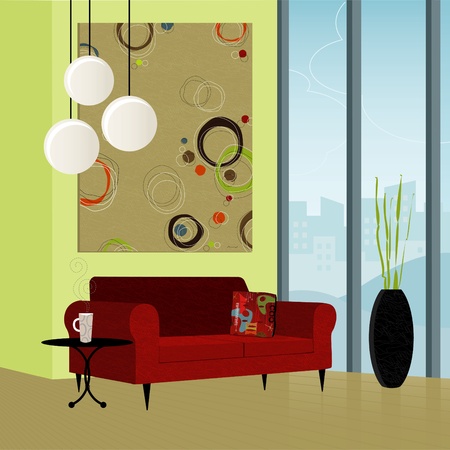Understanding British Traditions in Everyday Life
To truly appreciate the fusion of traditions and modern wellbeing practices, one must first understand the enduring influence of British customs on daily life. Iconic rituals, such as afternoon tea, are more than just quaint habits; they reflect a deep-rooted appreciation for pause, reflection, and social connection. The gentle clinking of china cups during a mid-afternoon break is emblematic of a culture that values both hospitality and mindfulness—a sentiment echoed in homes across the UK. Beyond the teapot, traditional British home etiquette shapes everyday routines: polite greetings at the doorway, the art of queueing with patience, and an emphasis on keeping living spaces tidy and welcoming. These practices not only define personal comfort but also foster a strong sense of community spirit. Whether it’s sharing biscuits with neighbours or participating in village fêtes, British customs create moments of togetherness that anchor individuals within their communities. In recognising these classic rituals and their subtle yet profound impact, we lay the foundation for blending time-honoured practices with contemporary approaches to holistic wellbeing.
2. Introducing Feng Shui: An Eastern Philosophy in a British Context
Feng Shui, an ancient Chinese practice rooted in the harmonious arrangement of space and energy (Qi), offers guiding principles for creating environments that nurture wellbeing. At its core, Feng Shui seeks to balance the five elements—wood, fire, earth, metal, and water—through intentional design, enhancing both physical comfort and emotional calm. While this philosophy hails from the East, its resonance within British sensibilities is surprisingly strong, especially in the context of home-life steeped in tradition yet open to contemporary influences.
Core Principles of Feng Shui
| Feng Shui Principle | British Home Equivalent |
|---|---|
| Clutter-Free Spaces | Spring cleaning; minimalism embraced in modern British interiors |
| Natural Light and Air Flow | Sash windows; preference for airy conservatories and garden views |
| Balance of Elements | Use of wood panelling, fireplaces, stone flooring, and indoor plants |
| Entrances as Energy Gateways | The traditional British hallway as a welcoming space with coat stands or umbrella holders |
The British Approach: Harmony with Heritage
Integrating Feng Shui into a British context does not mean discarding beloved customs. Rather, it provides a lens through which longstanding traditions—like afternoon tea by the bay window or seasonal décor swaps—find renewed purpose. The British appreciation for craftsmanship and comfort aligns seamlessly with Feng Shui’s advocacy for mindful selection and placement of objects. Whether it’s arranging family heirlooms on a mantelpiece or curating a restful reading nook beside a classic armchair, these acts echo both philosophies’ emphasis on intentionality and serenity.
Why Feng Shui Resonates in the UK Today
In today’s fast-paced Britain, where modern living often collides with heritage architecture, Feng Shui offers practical strategies for restoring balance. From Victorian terraces to contemporary flats, its adaptable guidelines empower individuals to tailor their homes as sanctuaries—a notion cherished across generations. By blending these Eastern principles with British customs, homeowners can craft spaces that are not only aesthetically pleasing but also deeply supportive of daily wellbeing.

3. Synergies: Where British Customs and Feng Shui Align
At first glance, the worlds of British tradition and Feng Shui may seem far apart, yet a closer look reveals fascinating points of harmony. Both value the subtle art of creating spaces that foster wellbeing—rooted in time-honoured customs and a desire for daily comfort.
Orderliness: A Shared Foundation
The classic British appreciation for order—think neatly trimmed hedges, well-laid tea tables, and tidy interiors—finds an echo in Feng Shui’s emphasis on uncluttered, harmonious environments. Both traditions suggest that physical order encourages mental clarity, making it easier to relax and focus within one’s home. In practice, this could mean adopting a more mindful approach to household organisation, blending the British penchant for neatness with strategic Feng Shui placements.
Hospitality: Welcoming Spaces
Britain’s reputation for warm hospitality resonates deeply with Feng Shui principles. A traditional British sitting room is designed to be inviting, often centred around a fireplace or comfortable seating—a natural gathering point for friends and family. Similarly, Feng Shui recommends arranging furniture to promote easy conversation and a flow of positive energy. By aligning these approaches, hosts can create living areas that feel both authentically British and energetically balanced, ensuring guests always feel at ease.
A Sense of Comfort: Home as Sanctuary
Perhaps most striking is the mutual commitment to comfort. The concept of “cosiness,” so central to British life—whether found in a snug reading nook or under the gentle glow of a lampshade—mirrors Feng Shui’s aim to cultivate tranquillity and wellbeing. Soft furnishings, gentle lighting, and cherished heirlooms are not just decorative touches but essential elements that transform a house into a sanctuary. Integrating these comforts with thoughtful Feng Shui adjustments elevates daily living, making home truly a place of rest and renewal.
Harmonising Traditions for Modern Wellbeing
By recognising these synergies between British customs and Feng Shui, we unlock new possibilities for everyday wellbeing. Rather than competing forces, these traditions can be woven together—bringing out the best of both worlds in our homes.
4. Practical Integration: Feng Shui Tips Tailored for British Homes
Blending the ancient wisdom of Feng Shui with the distinct charm of British homes calls for both creativity and respect for tradition. Whether you reside in a terraced Victorian house, a semi-detached 1930s home, or a modern London flat, it’s entirely possible to harmonise your living space with subtle yet effective Feng Shui adjustments. Here are accessible suggestions tailored to the unique character of British interiors.
Furniture Layout: Honour Heritage, Enhance Flow
British homes often feature well-defined rooms and classic furnishings such as fireplaces, bay windows, and built-in bookcases. To promote positive energy (Qi), position sofas and armchairs to face each other in a circular arrangement, fostering conversation and community—core values in both British culture and Feng Shui principles. Avoid blocking natural pathways; instead, allow for smooth movement throughout the room, which mirrors the traditional English value of gracious hospitality.
Use of Light: Embrace Natural Ambience
Natural light is treasured in Britain, where cloudy skies are common. Maximise daylight by keeping window ledges clear of clutter and using light, airy curtains. Incorporate mirrors strategically to reflect light deeper into rooms—especially effective in older houses with smaller windows. This not only aligns with Feng Shui’s emphasis on brightness but also echoes the British appreciation for drawing rooms filled with morning sun.
Decluttering: A Nod to Orderliness
The British penchant for order finds harmony with Feng Shui’s advocacy for uncluttered spaces. Regularly review entryways, hallways, and communal areas to remove unnecessary items—think shoes by the door or excess coats on pegs. Use traditional British storage solutions like ottomans or under-stair cupboards to keep essentials out of sight while retaining easy access.
Quick Reference Table: Feng Shui Adjustments for British Homes
| Area | British Custom | Feng Shui Tip |
|---|---|---|
| Sitting Room | Cosy seating around fireplace | Circular furniture layout for energy flow |
| Entrance Hall | Umbrella stand, coat rack | Keep clear & add welcoming lighting |
| Kitchen | Traditional larder cupboards | Organise pantry, avoid overcrowding surfaces |
| Bedroom | Classic iron bedstead | Avoid bed directly facing the door; use calming colours |
Cultural Harmony in Everyday Life
By thoughtfully integrating these practical Feng Shui strategies into British domestic traditions, you can foster an environment that honours heritage while enhancing wellbeing—a seamless blend where old-world charm meets contemporary mindfulness.
5. Daily Wellbeing: Boosting Mindfulness and Balance
In the fast-paced environment of modern British life, finding moments of calm can seem elusive. However, by thoughtfully blending time-honoured British customs with Feng Shui principles, individuals can cultivate a daily routine that nourishes both body and mind. The quintessential British appreciation for ritual—whether it’s enjoying a cup of tea in the afternoon or taking a stroll through the local park—mirrors the mindful practices central to Feng Shui, where every action and object placement carries intention.
Integrating Tradition and Modernity
The fusion of these two worlds invites us to slow down and appreciate the present. Incorporating Feng Shui into everyday British routines—such as arranging your sitting room to maximise natural light or placing meaningful objects near your entryway—encourages mindfulness at home. These subtle changes invite positive energy, fostering a sense of serenity that complements the comforting rituals already embedded in British culture.
Mindfulness Through Everyday Rituals
From a meditative morning brew to setting aside time for family Sunday roasts, blending such traditions with conscious spatial arrangement can transform ordinary moments into opportunities for reflection and balance. Each small act becomes an anchor, grounding us in gratitude and awareness amidst the demands of contemporary living.
Promoting Harmony in Modern British Living
By embracing both local customs and ancient wisdom, households can create harmonious environments that support wellbeing. Whether you live in a bustling city flat or a countryside cottage, this integrated approach offers practical ways to enhance daily life. Ultimately, weaving together tradition and modernity not only preserves cherished British values but also nurtures a balanced and mindful lifestyle fit for the modern age.
6. Stories of Success: Local Perspectives
Across the United Kingdom, many households have found unique ways to blend beloved British customs with the ancient wisdom of Feng Shui, resulting in enhanced wellbeing and a renewed appreciation for both traditions. Take, for example, the Smith family from Surrey. Their classic Victorian terrace is adorned with time-honoured touches like a tea caddy on the mantel and a grandfather clock in the hallway. Yet, after consulting a local Feng Shui practitioner, they repositioned their furniture to encourage better energy flow and introduced plants in specific corners to invite prosperity. Mrs. Smith recounts how Sunday roasts now feel more harmonious, with guests commenting on the inviting atmosphere—something she attributes to their thoughtful fusion of East and West.
Similarly, a young couple in Manchester embraced both modern minimalism and cherished rituals by integrating Feng Shui principles into their daily routines. They placed a mirror in their entrance hall—not only as a nod to British practicality but also to reflect positive energy throughout their home. Afternoon tea is now served in a sunlit spot said to enhance happiness according to Feng Shui, and they’ve noticed conversations seem warmer and laughter more frequent.
Even among London’s bustling flats, stories abound of subtle yet meaningful changes: a student flatshare near Camden reimagined their living room layout following Feng Shui guidelines while still displaying framed vintage tube maps and Union Jack cushions. The result? Improved concentration during study sessions and an uplifted communal spirit during group suppers.
These anecdotes from across the UK highlight that you don’t need to choose between heritage and innovation. Instead, by weaving together British customs—like afternoon tea or seasonal décor—with thoughtful Feng Shui adjustments, households are discovering new ways to nurture comfort, connection, and wellbeing in everyday life.


